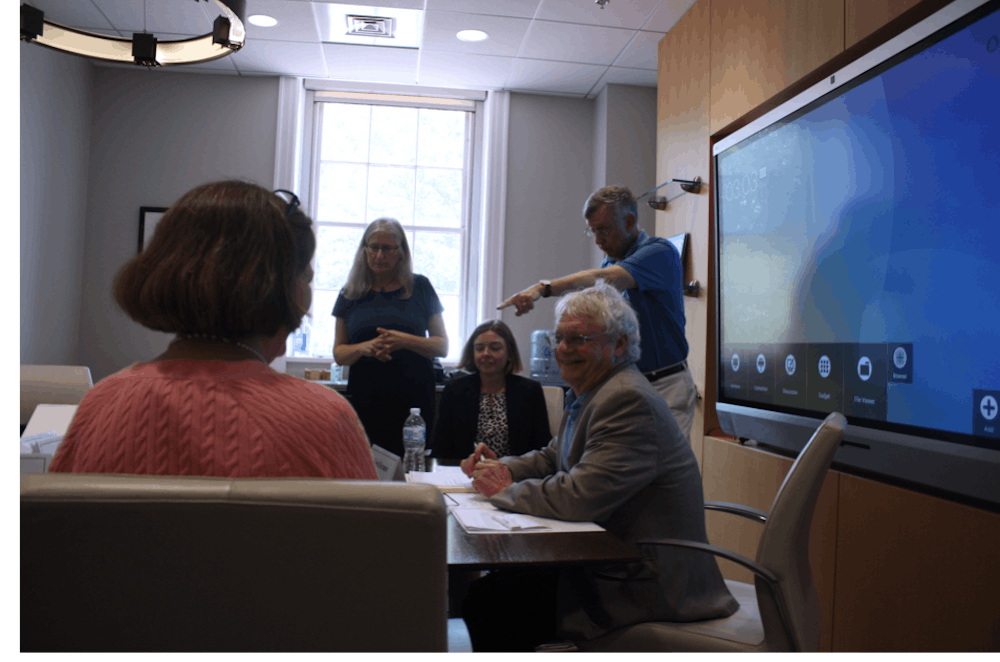Advocates for the Program for Public Discourse met with UNC faculty Monday to strategize bringing civil discussion and structured advocacy to the classroom — but some professors raised concerns about ethics, money and politics.
Housed in the UNC College of Arts and Sciences, the program has been a subject of recent debate, with several staff members noting possible conservative bias.
Monday's roundtable was the first of three scheduled meetings between staff members and program advocates. The stated mission of the program is for faculty members to teach students about methods of discussion mediation and engaging in structured debates.
The program is planning to offer courses in civil conversation to students that will not count toward any degree or certificate requirements.
“This is not a curriculum program at this point,” said Terry Rhodes, interim dean of the College of Arts and Sciences. “But that could happen. I don’t want to say that that’s not possible.”
She said the program would move forward with a faculty-led, faculty-approved initiative.
The group is led by inaugural director Chris Clemens, senior associate dean for research and innovation within the College of Arts and Sciences. Conservative Princeton scholar Robert George acts as chairperson of the advisory board. The Dowd Foundation Inc. — a Charlotte-based nonprofit faculty have claimed has conservative ties — has contributed significant funding.
Rhodes did not confirm that the program has received any support from liberal donors.
English and comparative literature professor Elyse Crystall said she had concerns about the lack of transparency in funding for the program.




